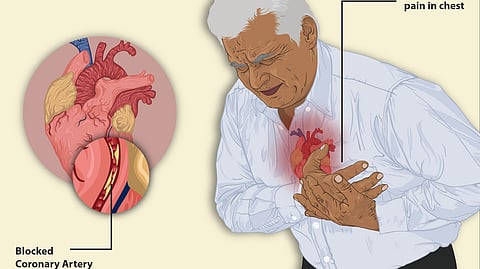According to the U.S. Centers for Disease Control and Prevention, AFib is the most common heart arrythmia that affects more than 12 million Americans and can be fatal. The standard of care for treating the condition is ablation, which involves small catheters inserted into the heart to burn or freeze specific areas responsible for the electrical signals causing an abnormal heartbeat.
Before the procedure, physicians use the FDA-approved technology to locate a patient’s arrythmia by converting their EKG data into specific source maps that leverage millions of arrythmia simulations performed by technology resources, including the Supercomputer Center at UC San Diego.
Gordon Ho, MD, cardiac electrophysiologist at UC San Diego Health, is available to discuss the use of AI in arrythmia treatment.
(Newswise/SS)


